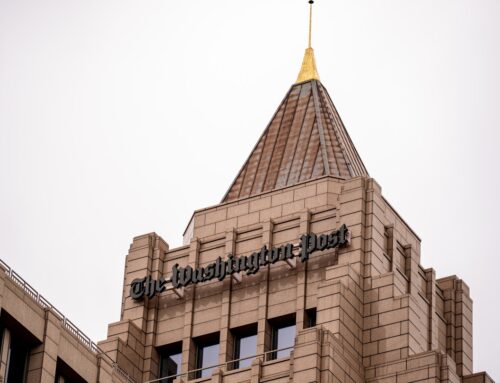Trump’s trade war is pushing investors away from America
April 21, 2025
New York
CNN
—
Global markets have been shaken to their core by President Donald Trump’s aggressive trade agenda — and despite his promise of a “new golden age of America,” the long-held appeal of US investment is starting to lose its luster.
Trump’s tariffs have been a catalyst for the end of an era of US exceptionalism, analysts say, and a dent to the image that US markets are the premier place to invest with unrivaled performance.
His trade war has clouded business decisions and disrupted forecasts for economic growth. CEOs have slashed guidance and Wall Street banks have cut their year-end targets for the S&P 500.
Bank of America’s latest global fund manager survey showed the largest number of global investors on record intending to decrease their holdings of US stocks since data collection began in 2001. Seventy-three percent of respondents said they think US exceptionalism has peaked.
The Trump administration’s trade policy has raised concerns about US economic growth and caused global investors to rethink their allocation to US assets, Arun Sai, senior multi-asset strategist at Pictet Asset Management, told CNN.
“Even if there is a steady de-escalation from here, the damage is done,” Sai said. “There is no putting the genie back in the bottle.”
The US stock market has long been the gold standard. The S&P 500 has steadily outperformed its counterparts in Europe and Asia for the past 15 years, according to FactSet data.
Yet the S&P 500 is down 10% this year and on track for its worst month since 2022. Investors are well aware that the landscape has changed tremendously since the benchmark index soared 23% across last year.
There have been three catalysts that have shifted focus away from America and toward investing overseas, according to Alessio de Longis, head of investment solutions at Invesco.
In January, DeepSeek’s low-cost, ChatGPT-like artificial intelligence model caught Silicon Valley by surprise and challenged the narrative that the US had outright dominance in AI.
In February, a shift in US foreign policy toward less support for Ukraine spurred defense spending in Germany, a boon for economic growth and investing in Europe.
And Trump’s haphazard approach to tariffs in March and April was the third nudge for investors to look at other markets, according to de Longis.
“The relatively erratic and unpredictable communication strategy around tariffs, as well as the initial shock of the amount of tariffs that were being threatened across the world provided another impetus for US underperformance,” de Longis said.
In the past three months, de Longis said his investment strategy has shifted from overly-focused on US stocks in favor of a balance between US and European stocks.
The latest survey from the American Association of Individual Investors showed that for the past eight weeks, more than 50% of respondents have been bearish on the US stock market.
Jason Blackwell, an investment strategist at Focus Wealth Partners, said it has likely been 15 years since a client has asked to increase their allocation to international stocks.
“That’s been a pretty consistent call that we’ve gotten over the last couple of weeks,” Blackwell said. “So, there’s definitely interest there again.”
Blackwell said the advent of DeepSeek and the prospects for more growth in Europe caught investors’ attention. “Add in the tariffs on top of that, and add in this de-globalization trend, and I think you had a series of events that really had investors rethinking their international exposures and rebalancing a bit from where they have been over the last 10 years,” he said.
Heading into this year, the US accounted for about 25% of global GDP and 65% of global stock market value, according to Barclays.
“For nigh on 20 years, the US has benefited from almost relentless flows into USD financial assets,” said Ajay Rajadhyaksha, an analyst at Barclays, in a recent note. “Perhaps we were primed for some give-back … and a bunch of things have changed elsewhere.”
“Europe has finally bought in to the idea of large fiscal stimulus,” Rajadhyaksha said. “At least from a narrative standpoint, there seem to be some alternatives for international investors heavily over-exposed to the US.”
Rajadhyaksha also said that businesses in China have made “impressive strides” in technology beyond DeepSeek, noting that there have been breakthroughs by Huawei and electric vehicle company BYD, which rivals Tesla in the global market. The Chinese government has also recently embraced its private tech sector.
Bank of America’s fund manager survey in April showed 49% of respondents think the global economy is on track for a “hard landing,” up from 11% in March.
Gold has soared almost 27% this year, smashing through record highs as investors flock to safe haven assets. The most crowded trade in April was gold, according to Bank of America’s survey, breaking a two-year streak of the most crowded trade being the Magnificent Seven tech stocks.
Meanwhile, the US dollar has broadly weakened this year, a potential sign of waning investor confidence in the US. The US dollar index, which measures the dollar’s strength against six major foreign currencies, recently posted its worst week since 2022. The Euro last week hit its strongest level against the dollar in over three years.
“We have previously argued that exceptional US asset return prospects are responsible for the dollar’s strong valuation,” analysts at Goldman Sachs said in a recent note. “If tariffs weigh on US firms’ profit margins and US consumers’ real incomes, like we think they will, they can erode that exceptionalism and, in turn, crack the central pillar of the strong dollar.”
Krishna Guha, vice chairman at Evercore ISI, said in a note that “recent market action shows a loss of confidence in Trump economic policy,” citing higher Treasury yields and a weaker dollar.
Trump’s yearning for a domestic manufacturing renaissance portends to disrupt the global economy — a deeply intertwined system where the United States has enjoyed the center stage.
The Trump administration’s adamance on changing the international trading system and global economic order has likely contributed to fewer inflows to US assets, according to Pictet Asset Management’s Sai.
While the US stock market remains a viable place to invest for the long term, Sai said, investors are seeking out stocks overseas to diversify their portfolios. JP Morgan is forecasting a 60% chance of a global recession this year.
“If you’re a European investor, you will now think twice about allocating strategically to the US,” Sai said. “The S&P 500 is no longer the only game in town.”
Search
RECENT PRESS RELEASES
Related Post




